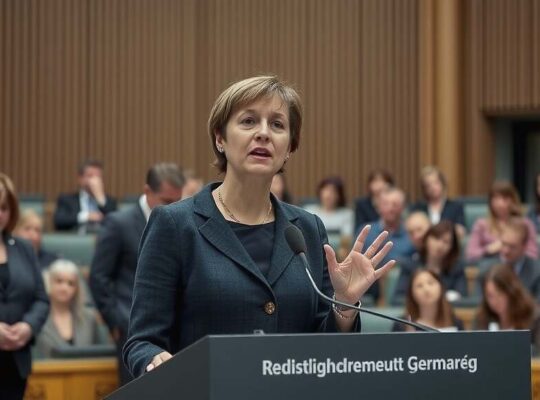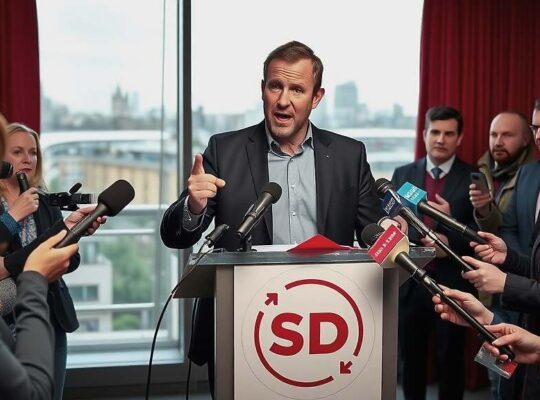The SPD faction is publicly pressuring the conservative Union parties to endorse the agreed-upon pension reform package, despite vocal opposition from within the Union’s youth wing, the Junge Union (Young Conservatives). This internal conflict highlights deepening fractures within Germany’s ruling coalition and raises questions about the stability of the government’s ability to deliver on key policy initiatives.
Annika Klose, the SPD’s parliamentary spokesperson for labor and social policy, emphasized the expectation that coalition partners should honor pre-negotiated compromises. “While it is legitimate for a party’s youth wing to develop independent political viewpoints, members of a governing coalition are expected to fulfill their responsibility and support negotiated agreements” Klose stated in remarks published across the Funke-Mediengruppe newspapers. She underscored that reliable governance necessitates adherence to such commitments, a necessity, she argued, that citizens increasingly demand.
The Junge Union’s rejection of the current pension plans represents a significant challenge to Chancellor Friedrich Merz’s leadership and the cohesion of the conservative bloc. While Merz has publicly affirmed his support for the coalition agreement, the dissent from younger members within his own party signals a potential generational clash regarding economic and social policy.
The reform package, intended to address the looming challenges of an aging population and declining birth rates impacting the pension system, has been broadly criticized for its perceived inadequacy and potential impact on future generations. The SPD’s insistence on its implementation underscores the party’s commitment to providing social security, particularly for future retirees beyond 2031. However, the ongoing internal debate exposes vulnerabilities within the government’s ability to enact meaningful reforms and raises concerns about the long-term viability of the ruling coalition. The clash demonstrates a fundamental disagreement on the pace and scope of necessary economic and social adjustments, potentially hindering Germany’s ability to meet the demands of its citizens and secure its future prosperity.












